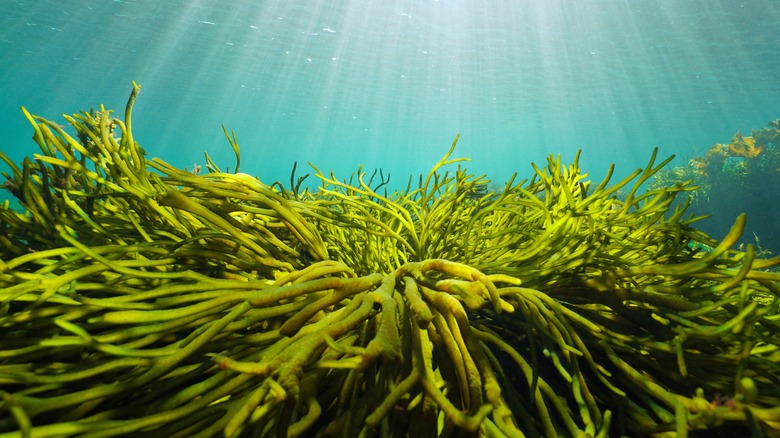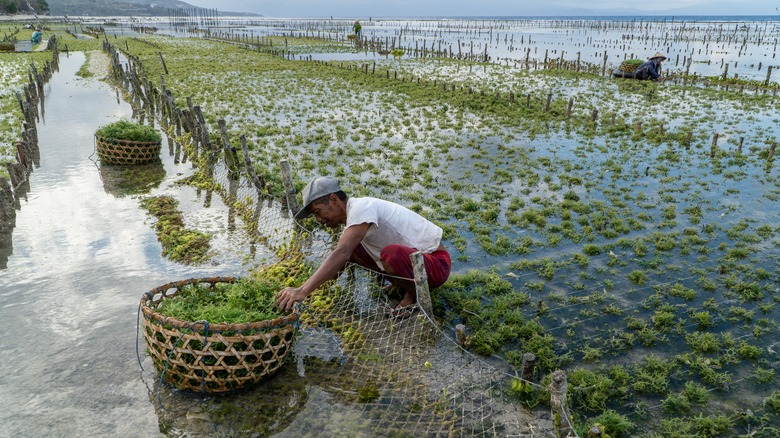The Real Reason Seaweed Is So Sustainable
Sea moss, a type of seaweed, has recently become quite chic. According to a report from The Times, the Irish sea moss that once fed people during the potato famine can now be seen in stores and across the internet as a superfood with prices to match. So, what is the main reason for the increase in demand? There are multiple answers to this seemingly straightforward question, but according to an expert in the matter, at least one of them focuses on potential health benefits for people.
"More research is needed into the claimed health benefits of sea moss in humans," Bhupesh Panchal, senior regulatory affairs associate at the health food retailer Holland & Barrett, explained, "but early effects are promising on studies into similar seaweed and algae." Notably, we know Irish sea moss has a plenitude of vitamins and minerals, but it also contains iodine, something experts warn against ingesting too much of.
For those eager to incorporate seaweed into their diet, CNN offers some tips. First, check the sourcing and metal content of your seaweed. After that, you can grind your seaweed into a powder to season popcorn and bread. You can also use seaweed as a substitute for kale. One of seaweed's most popular appearances is now in seaweed smoothies. There are near endless applications for the plant and more important, as its advocates will argue, it is one of the most sustainable plants.
Seaweed production may be the future
The message that seaweed is the future has been gathering steam. Although people have long recognized that seaweed can be utilized in meals, including our own homemade seaweed salad recipe, more recent developments have proven its broad set of uses.
In 2021, Biofriendly Planet published a piece looking toward seaweed as a potential packaging material that could replace plastic. It certainly has benefits that edge out the competition. Seaweed does not require chemical distillation to be used as packaging, and its only byproduct is yeast. Moreover, even without the need for fertilizer or freshwater, it grows up to three meters each day. Ocean Wise adds that seaweed can also soak up pollutants in water. Similarly, kelp can absorb five times more carbon than trees. The list of seaweeds' near-mythic properties seems endless.
Between the nutritional benefits and the environmental ones, demand for seaweed is likely to rise, something that is not without a downside. When considering this, the Marine Stewardship Council (MSC) advises against treating seaweed like a magic crop that requires no effort on our part. Without proper management, the overproduction of seaweed could alter the quality of water and disrupt ecosystems. In 2017, the MSC and Aquaculture Stewardship Council published a standard for environmentally sustainable seaweed production.

